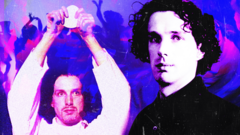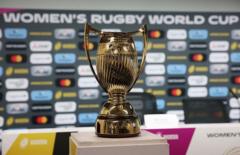How Did a Radical Priest Exploit His Parishioners with Slave-Like Assistants and Late-Night Massages?

In the 1980s and 1990s, the Nine O'Clock Service (NOS) in Sheffield, heralded for its vibrant nightclub-style worship, attracted a large youth following. However, its leader, Chris Brain, has now been found guilty of multiple counts of indecent assault, revealing a darker side to this charismatic movement that manipulated and abused its members.
Last updated: 23 October 2023 (BST)
Key Takeaways
- The Nine O'Clock Service was a popular youth-focused church initiative in Sheffield.
- Chris Brain, its leader, has been convicted of 17 counts of indecent assault.
- Brain's leadership style was described as manipulative and controlling.
- The movement's collapse followed allegations of sexual abuse and Brain's eventual resignation.
- Brain's charismatic approach initially drew in large crowds but masked serious abuses of power.
The Rise of the Nine O'Clock Service
Chris Brain's journey began at St Thomas Crookes Church in Sheffield, where he sought to revamp the traditional church model. By incorporating contemporary music and multimedia, he aimed to create an environment appealing to the younger generation. This vision was realised when he was offered a slot on Sunday evenings, which would become the foundation for the Nine O'Clock Service.
Creating a New Worship Experience
Brain, a member of the Christian rock band Present Tense, transformed church services into high-energy events that resembled nightclub gatherings. The congregation quickly grew, attracting up to 400 attendees, and required relocation to larger venues to accommodate demand.
As the NOS gained popularity, notable figures, including the then Bishop of Sheffield, praised the initiative. George Carey, prior to becoming Archbishop of Canterbury, expressed a desire to see similar services established across the UK.
The Dark Turn: Manipulation and Control
Despite the vibrant atmosphere, many members reported a concerning shift in Brain's leadership style. Testimonies revealed a culture of manipulation and control, with new members subjected to a vetting process and encouraged to adopt a "vow of poverty." Financial contributions were expected from the congregation, often leading to significant personal sacrifices.
Pressure and Isolation Tactics
Former members described how Brain's influence extended beyond the church services, as he discouraged socialising outside the NOS community. Those who did not comply faced social ostracism, reinforcing a sense of dependency on Brain's approval.
One individual recounted feeling isolated and fearful of losing acceptance within the group, stating that her self-esteem was tied to Brain's approval. This psychological manipulation created an environment ripe for abuse.
Allegations of Abuse
The accusations against Brain escalated over time, leading to a significant investigation into his conduct. Testimonies from victims revealed a disturbing pattern of sexual abuse, often framed as consensual by Brain during his trial. Victims described experiences of coercion and confusion, highlighting the toxic dynamics within the NOS.
The Homebase Team and Exploitation
Brain reportedly established a "homebase team," comprising young women who were tasked with domestic duties at his home. This group was described by some as being treated like "slaves," with members feeling obligated to comply with Brain's demands. Allegations included inappropriate touching and sexual advances during what were purportedly innocent massages.
One victim recounted the distressing experience of being coerced into physical contact, which Brain downplayed as "no big deal." Such incidents contributed to the larger narrative of abuse that ultimately culminated in his conviction.
The Fall of Chris Brain and the NOS
The NOS's rapid rise was paralleled by its swift decline. Allegations of sexual misconduct began to surface, prompting Brain's resignation in 1995. In a BBC documentary, Brain admitted to "improper sexual conduct," shedding light on the extent of the issues within the NOS.
It wasn't until 2019 that police reopened investigations into the allegations, leading to Brain's charges in 2024. The jury's verdicts, which included 17 counts of indecent assault against nine victims, marked a significant moment for those who had suffered under his leadership.
Legal Consequences and Legacy
Brain's convictions have left a lasting impact on the victims, who have struggled with the psychological aftermath of his manipulation. The court's findings have dismantled the facade of power Brain held over his congregation, allowing survivors to reclaim their narratives.
As the legal proceedings continue, questions remain about the Church of England's responsibility in enabling Brain's rise and the lessons that can be learned from this troubling chapter in its history.
What Happens Next?
The fallout from Brain's trial raises critical questions about accountability within religious institutions. Survivors of abuse often face long paths to healing, and the system must ensure support for those affected. Moving forward, it is essential for the Church of England and similar organisations to address power dynamics and prevent future abuses.
FAQs
What was the Nine O'Clock Service?
The Nine O'Clock Service was a youth-oriented church initiative in Sheffield that operated in the 1980s and 1990s, known for its vibrant, nightclub-like atmosphere.
Who is Chris Brain?
Chris Brain was the leader of the Nine O'Clock Service, recently convicted of multiple counts of indecent assault against women in his congregation.
What were the allegations against Chris Brain?
Brain faced allegations of sexual assault and manipulation of church members, including coercion and psychological abuse.
What led to the collapse of the Nine O'Clock Service?
The NOS collapsed due to allegations of sexual misconduct against Chris Brain, leading to his resignation and a decline in attendance.
How has the Church of England responded to this situation?
The Church of England has faced criticism for its role in enabling Brain's rise, prompting calls for greater accountability and reform within the institution.
What support is available for victims of church-related abuse?
Victims of church-related abuse can seek support from various organisations, including counselling services and legal assistance, to help navigate their recovery process.
As the Church grapples with the implications of these events, it raises the question of how future generations can be protected from similar abuses of power. The Nine O'Clock Service saga serves as a poignant reminder of the complexities surrounding faith, authority, and accountability. #ChurchAbuse #NOS #ChrisBrain
Published: 2025-08-21 16:35:13 | Category: technology



